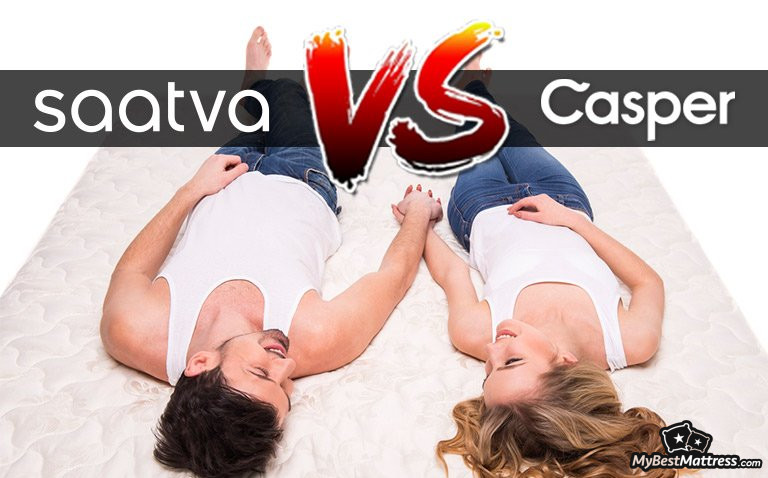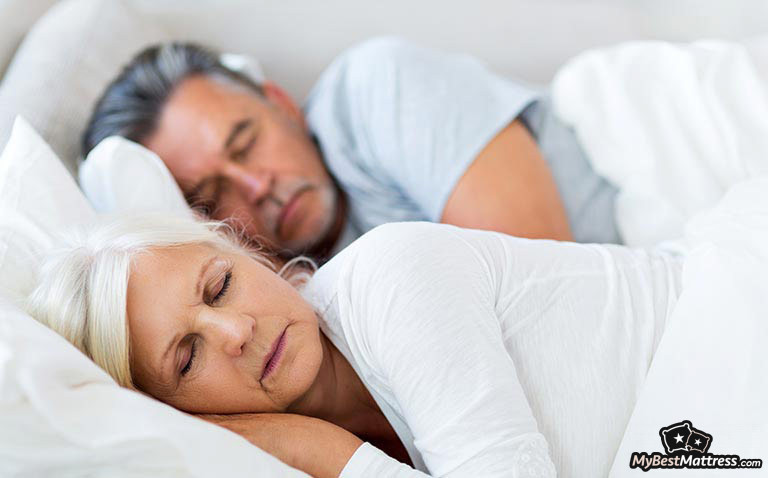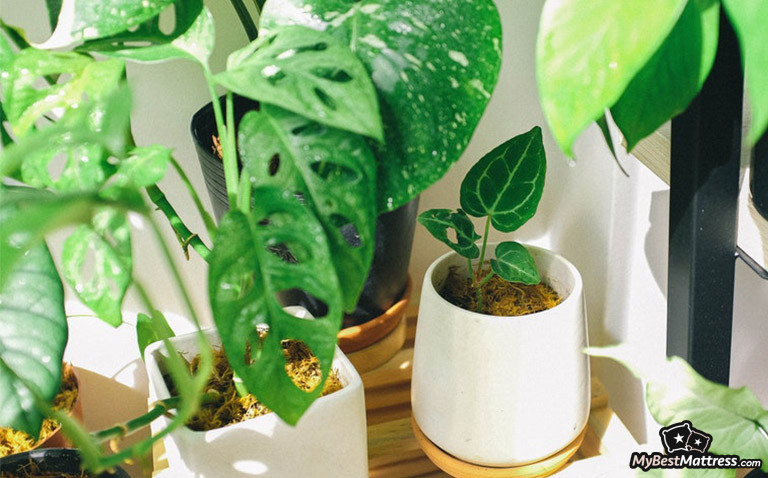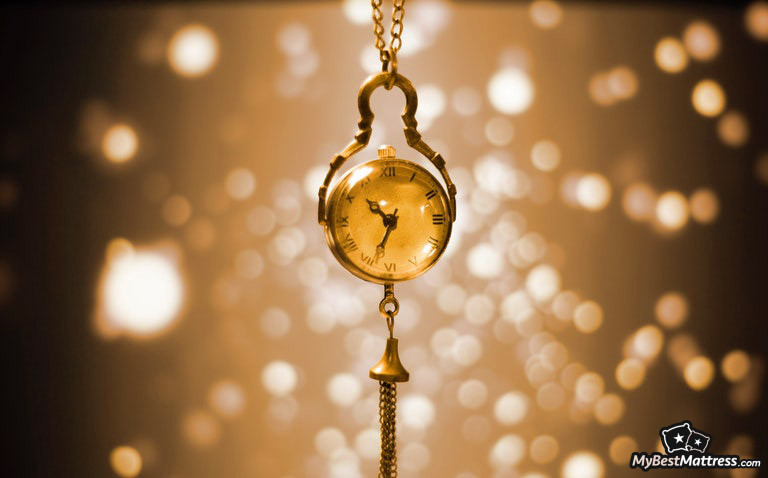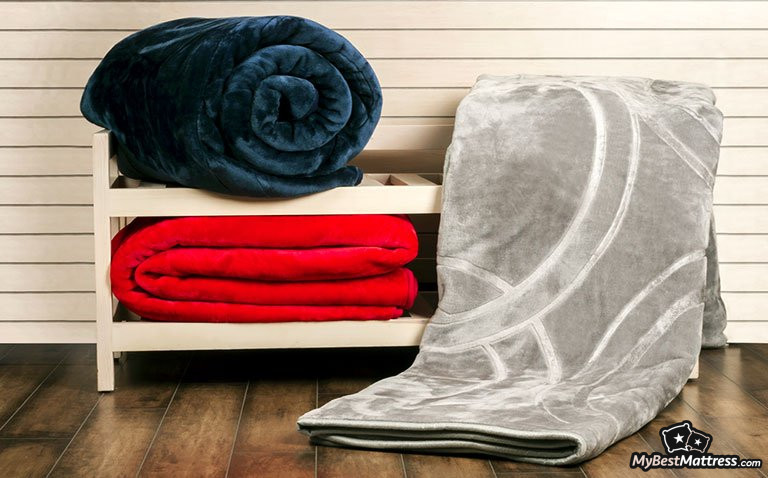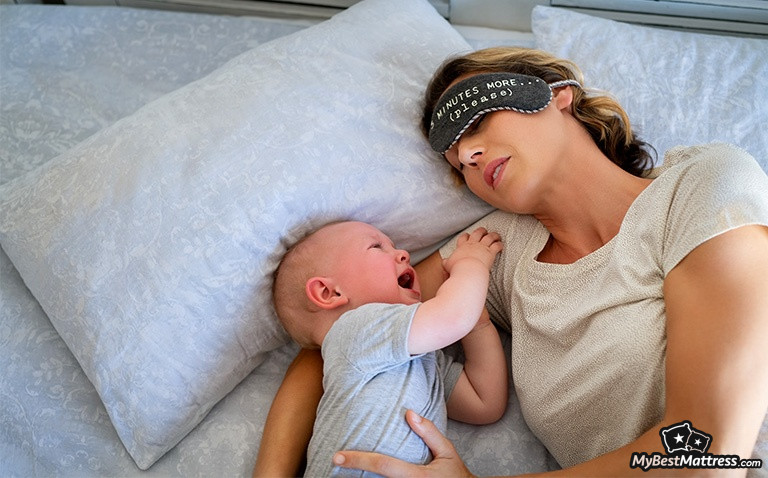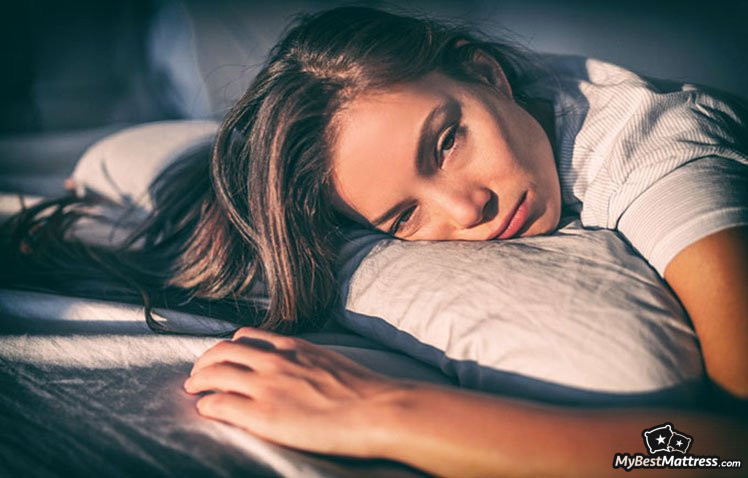
Most of us perceive sleep as salvation - after a long day, we can’t wait to go to bed and finally rest. But that’s the best-case scenario. Some people struggle with seeing sleep as a good thing and develop sleep anxiety.
Sleep anxiety or somniphobia is an intense and irrational fear of sleep. It should be taken seriously as it prevents a person who experiences it from falling asleep. Such harsh sleep interruptions could lead to various ailments or even severe, both physical and mental health problems.
It still remains a mysterious subject as it’s not at all that common. You hear about wanting to sleep but not being able to or finding it hard to get up way more often. So here, I will uncover the nuances of this rather unusual fear of falling asleep.
What is important to mention when talking about sleep anxiety?
If you wake up during the night and simply cannot fall back asleep, it is best to get up and do something non-stimulating for 60 to 90 minutes until you feel sleepy again. Staying in bed and fretting about not sleeping contributes to the problem of insomnia.
Table of Contents
- 1. What Causes Sleep Anxiety?
- 1.1. Traumatic Experiences
- 1.2. Sleepwalking
- 1.3. Sleeptalking
- 1.4. Sleep Paralysis
- 1.5. Nightmares
- 1.6. Sleep Apnea
- 1.7. Feeling helpless
- 2. How to Sleep with Anxiety?
- 2.1. Identify the Fear
- 2.2. Change Your Mindset
- 2.3. Do Everything To Calm Down
- 2.4. Improve Your Sleep
- 2.5. Seek Medical Help
- 3. Conclusions
What Causes Sleep Anxiety?
This fear of sleep is anxiety-based. It happens when you’re way too worried about something scary happening to actually fall asleep. Those who fear sleep have many different reasons for that, but most common include:
- Traumatic Experience
- Sleepwalking
- Sleeptalking
- Sleep Paralysis
- Nightmares
- Sleep Apnea
- Feeling helpless
Let's learn more about each of these issues.
Traumatic Experiences
These fears have a lot to do with post-traumatic stress disorder. If you remember something bad from your childhood or earlier years that happened at the time you went to sleep, you might start associating sleep with the unpleasant memory.

Those experiences can include (but aren’t limited to) a person close to you dying, having to hear your parents argue, a fire starting or any other displeasing thing happening just before you go to sleep or when you’re asleep.
Latest Saatva Coupon Found:
UP TO $500 OFF
Limited-time Saatva Sale
We're sharing a limited-time Saatva mattress discount with our readers! Grab this deal & enjoy your new mattress with huge discounts.
Sleepwalking
Another scary thing that might give you sleep anxiety is a fear of sleepwalking. Sleepwalking, formally known as somnambulism, is a sleep-related issue when a person who experiences it, instead of lying down in bed, gets up and performs actions as if he or she was awake.
Although it’s not distressing because the sleepwalker himself doesn’t remember doing that, it might cause issues to those who see that. There are a lot of myths about sleepwalkers being possessed, and horror movies don’t help the image. Most often, it scares those who get to see it or learn that they’re one of the sleepwalkers.
Furthermore, it might be dangerous to sleepwalk. Since you’re not conscious, you’re unaware of your surroundings and might get injured. Even though, many of sleepwalking episodes go without any injuries, as people who sleepwalk seem to perform their tasks rather well.

So, if you’re one of the rather few people who sleepwalk, you may not want to fall asleep simply due to the fear of you sleepwalking while asleep.

Did you know?
Have you ever wondered which mattresses are approved as the best for sleep?
See & compare TOP mattresses side by sideSleeptalking
Another reason similar to sleepwalking, as they both include performing involuntary actions while asleep, is sleeptalking. It might not be as distressing as it’s not as active as sleepwalking, but it shouldn’t be taken lightly.
Just like the sleepwalkers, sleeptalkers are unaware of the fact that they talk in their sleep. While it’s not as scary as sleepwalking could be, it still wakes up some lighter sleepers who sleep beside the sleeptalkers.
The main reason why you could be scared to fall asleep if you’re a sleeptalker is that you might not want to say the things you say while you’re sleeping. You might insult someone, or maybe you’re keeping a secret, that the person sleeping beside you shouldn’t hear. That puts you at risk of exposing yourself.
Sleep Paralysis
One more reason you could be scared of falling is asleep is experiencing sleep paralysis. While it’s rather uncommon to be that afraid of it if you’ve never experienced it, the way sleep paralysis makes you feel is more than unnerving.
Sleep paralysis happens when you’re falling asleep or waking up. It’s a temporary paralysis during which you can’t speak or move. It may last up to a few minutes, and it’s rather rare, only 5% of people suffer from regular sleep paralysis.
Personally, I believe that the scariest part of it is the hallucinations you might get during a sleep paralysis episode. The hallucinations can include all the senses; you may hear, smell, see, or even taste things that aren’t there. And the worst part is that most of the hallucinations people experience aren’t pleasant. They usually resemble horror movie scenarios.

Such experiences could definitely deter a person from wanting to fall asleep ever again. Even if you don’t get hallucinations, the paralysis in itself is scary enough.
Nightmares
Continuing the topic of horrors, let’s talk about nightmares and how they influence sleep anxiety. Fear of falling asleep simply because you’re scared of having a nightmare seems entirely reasonable to me - they can be quite terrifying.
Nightmares, like most dreams, usually occur during the REM (rapid eye movement) stage of sleep. During it, your body is temporarily paralyzed, your eyes move rapidly, your breathing and heartbeat quicken. That's when you usually get nightmares.
Having recurring nightmares is definitely unsettling. Nightmares interrupt your sleep, make you wake up with a racing heart, get you sweaty, and make you experience immense fear. I don’t think there’s a person who’d choose this as a preferred scenario to their night.

So if you often have nightmares, you probably don’t perceive sleep as the most pleasant part of your routine. This fear of having them again might give you a fear of sleep and result in sleep anxiety. After all, anxiety and sleep don’t mix well, and it leaves you unhappy.
Sleep Apnea
When it comes to more physical diseases, sleep apnea is one of the reasons why you might have a fear of sleep too. Sleep apnea put simply is a difficulty to breathe while asleep. Some of its signs include snoring, choking, pauses in breathing, and other breathing disruptions.
While it’s usually not dangerous to your life, it has its effects on the health that could lead to risks of more severe illnesses. It also reduces your sleep quality, as it disturbs sleep and might wake you up.

Since sleep apnea is a disease that causes breathing disturbance, some may fear that they might suffocate while asleep. In fact, sleep apnea can’t really kill you, but the effect it has on the body can do you some harm. It might make the risks of heart and respiratory diseases more prevalent.
What is more, it’s associated with those who don’t lead extremely healthy lifestyles. Those in the higher risk group are usually overweight, older, are smokers, or frequent alcohol consumers. This way, your health is already more at risk than a healthy young person’s.
This fear of experiencing unpleasant breathing disturbances while asleep might keep you from falling asleep and even give you sleep anxiety.
Feeling helpless
The last reason why you might have the need to look up how to fall asleep with anxiety is that you might be scared of feeling helpless while you’re asleep. When you’re sleeping, your consciousness isn’t active, so you can’t control anything or make any decisions.
Sleep anxiety might also stem from previous trauma that happened while you were asleep. Maybe there were things you could’ve done only if you were awake to prevent a terrible thing from happening.
This fear of falling asleep isn’t natural, as humans require some downtime to relax their conscious brains from daily activities.
How to Sleep with Anxiety?
Now that you know the reasons, you must want to know how to sleep with anxiety. Conquering this fear is necessary for your own physical and mental wellbeing. Find out how to sleep with anxiety here.
- Identify the Fear
- Change Your Mindset
- Improve Your Sleep
- Do Everything to Calm Down
- Seek Medical Help
Let's analyze each of the points.
Identify the Fear
First things first, you have to know what you’re fighting against. Each case is individual, and this sleep anxiety comes from a specific thing you’re scared of when asleep. You should try to see which ones of the things stated above scare you the most or maybe even identify your own case.
Having done that, you’ll know what you have to focus on. The remedies, suitable for someone dealing with past trauma and someone who is keeping a secret and might be scared to say it in their sleep accidentally, differ significantly.
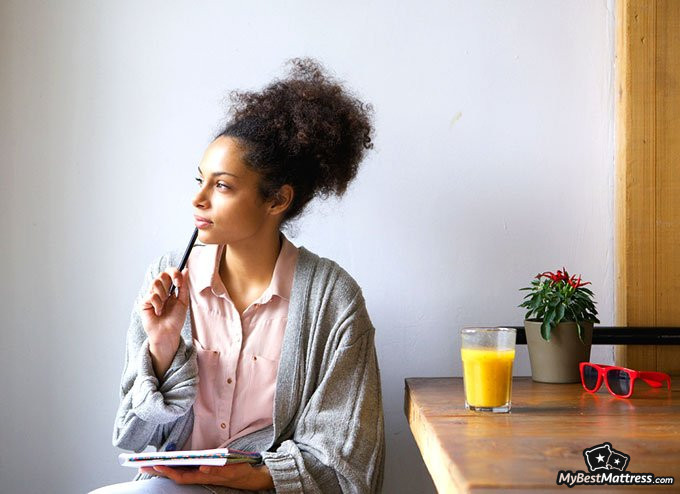
It might be a little hard to identify the fear if you’re too fixated on your fear of sleep in general. It’s most often not the sleep itself that scares you. Try to think what it could be, write down your feelings about sleep to get a clearer picture, or talk to a friend who might offer a different attitude to the problem.
Doing this is a crucial step, only when you realize the real problem, you’re able to start treating it.
Change Your Mindset
This one might be one of the hardest ones to do. If you have sleep anxiety, you may think that you’re not in control of your intrusive thoughts. But you still are, and you can shift your mindset a little.
Force yourself to think of sleep positively. Don’t keep thinking that you have anxiety, and sleep is impossible because of that. Try to program yourself that you, in fact, can sleep easily. Even the slightest shift of attitude can ease your problems.
One of the ways to do it is by saying mantras. Simply repeating that you’re not scared of sleep or that you’ll fall asleep easily can ease your sleep anxiety.
Do Everything To Calm Down
If mantras don’t help your sleep anxiety, there are other things to do. Your fear might be irrational, but it’s still based on something. One of the ways to do that is identifying the triggers and taking care of them. You know that anxiety and sleep aren’t the best combination, so try to alleviate anxiety before you sleep.
If you’ve been dealing with anxiety for a long time, you might have researched how to sleep with anxiety, and so have I. What I noticed in my research is that most articles don’t concentrate on unreasonable worries, that anxiety is based on. Plenty of articles suggest things you can do on the side but forget to mention tackling the concerns.

It’s easy to do. If you’re worried about your relative’s health, call them before sleep. If you’re scared of fire starting while you sleep, double or even triple check the stove and electric appliances. Don’t be scared to come off as annoying; your health and sleep quality are way more important than that.
Improve Your Sleep
You have changed your mindset and taken care of your worries, and now it’s time to take care of material things and your surroundings. That’s your bed, pillow, and your bedroom environment. I know that you might not see the link between fear of sleep and a mattress, but it has a lot to do with how long you’ll have to worry before you fall asleep.
A good mattress is a crucial thing for your sleep. The better your mattress is, the more comfortable you are, and the higher are the chances that you’ll doze off as soon as possible, leaving little time for worrying about our sleep anxiety.
Choosing the best mattress isn’t an easy task. There are a number of options based on your sleep position, are you a back-sleeper, or a side-sleeper? Do you prefer memory foam, latex, innerspring, or maybe hybrid mattresses? If you’re not a mattress expert and you don’t know the difference, check out the overall best mattresses, to learn about their features.

A decent pillow is essential too. A good mattress can’t do much if your pillow is lacking. Find one that suits you best, once again, you may base it on your sleep position, or maybe even specific issues, like neck pain.
Lastly, when it comes to your bedroom, make sure the environment is pleasant. There many tips like recommended bedroom temperature, certain scents, or colors you should surround yourself with. But if you’re dealing with a fear of sleep, first make sure you feel your best in your bedroom.
Seek Medical Help
Your last option could be seeking medical advice if nothing else works. Dealing with sleep anxiety if it’s an intense one could cause you a lot of pain. It might seem like simple worries, but it can affect your health a lot.
If you can’t fall asleep simply because of worrying about something, you should definitely try to ease that. Therapy can help a ton. A certified doctor knows best how to sleep with anxiety and could definitely assist you in dealing with it.

You may also get prescribed medicine along your therapy to ease the symptoms. Most commonly prescribed are beta-blockers or benzodiazepines. You know yourself best, and if you feel like you can’t manage without medicine, you should talk to your doctor about it.
Conclusions
Sleep anxiety can be tough to deal with. Proper sleep is necessary for your mental and physical health, and not being able to take care of it could leave you unhealthy and devastated.
Reasons for sleep anxiety include being scared of sleepwalking, sleeptalking, or sleep paralysis. You might also fear nightmares, sleep apnea, or feeling helpless. All these factors might make you lose sleep.
To take care of that, you should identify your fears, change your mindset, get rid of your triggers, and try to improve your sleeping environment. If it all doesn’t work, seek medical help, as it’s a serious issue you shouldn’t leave unsolved. Having done that, your sleep anxiety should be alleviated.
For those who are still struggling with falling asleep, there are more ways to get snoozing quicker. If you’re looking for additional info on how to fall asleep, check out our article, which will help to solve that.
Contributed By Peggy Sealfon, Personal Development Coach
Peggy Sealfon is a personal development coach, author, motivational speaker, and recognized internationally as an expert on dealing with stress and anxiety, especially as it relates to wellness and...
Read Full Bio...Leave your honest feedback
Leave your genuine opinion & help thousands of people to choose the best mattress. All feedback, either positive or negative, are accepted as long as they’re honest. We do not publish biased feedback or spam. So if you want to share your experience, opinion or give advice - the scene is yours!





